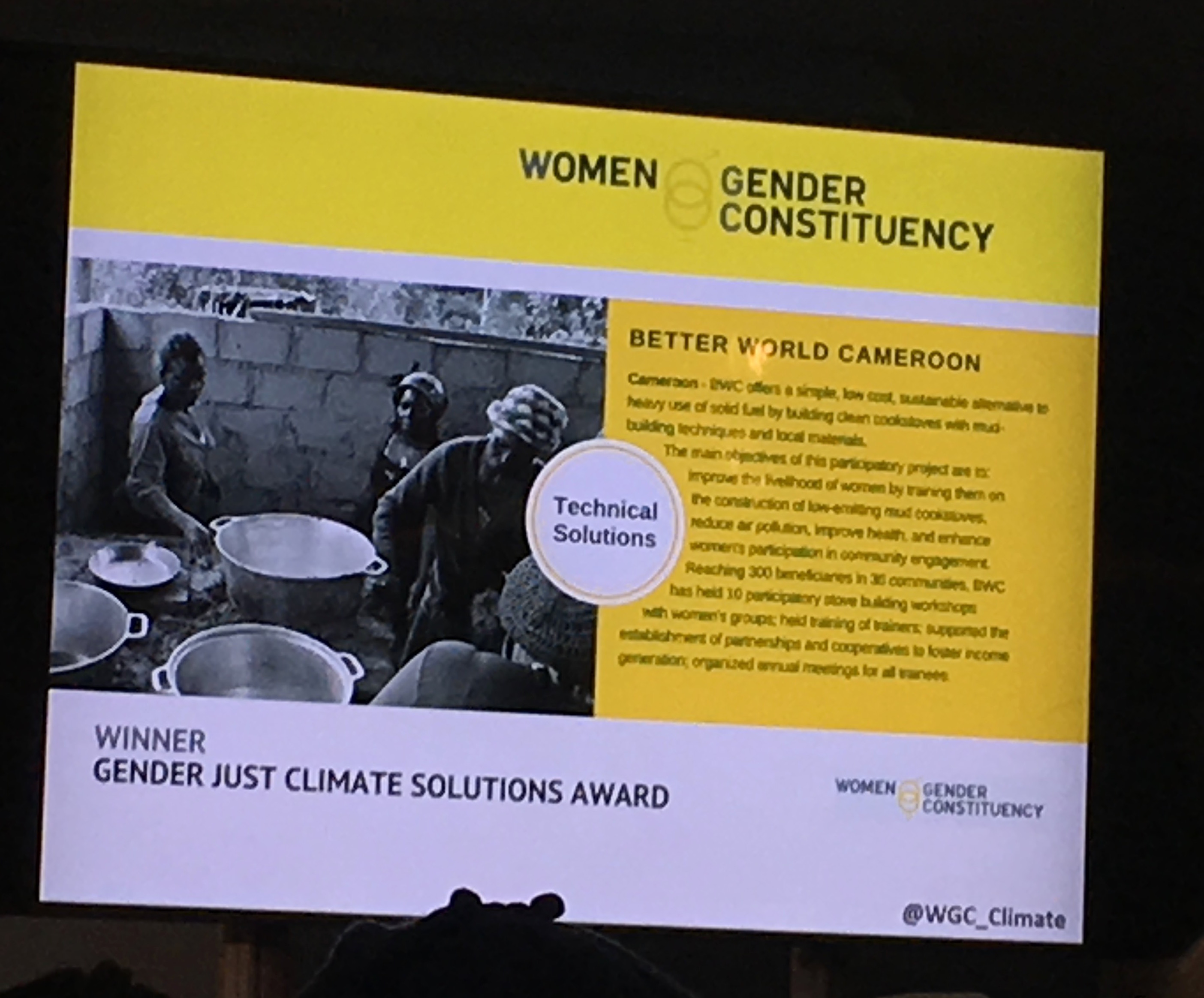By Ayuska Motha
Now that COP23 has come to an end, I am left with so many lingering impressions. It was an extremely busy 2 weeks, starting every morning with 8 am Women and Gender Constituency (WGC) strategy meetings, followed by the daily 9 am WGC caucuses. These were often followed by rushing over to the Bula negotiation zone to sit in on plenaries or contact groups, informals and other types of meetings. Since Stacey and I were also on the WGC Communication and Actions Team, lunch break was often busy participating in actions to promote gender rights, bring about awareness of the gender action plan and one day, women human rights activists who have lost their lives. The afternoons were a mix of press conferences, panels, events and closing or opening plenaries. The tented Bonn Zone was bustling with activity until very late every evening and even in the more somber Bula Zone, meeting were running very late on some evenings with one of the later meetings running until 7 or 8 am when discussions continued all through the night. At any given moment during the day, there must have been up to 30 meetings and events going on simultaneously just within the 2 zones of COP23. There were also additional nearby locations in and around Bonn where many other related events were also taking place.
One event that I attended that FAWCO members may be interested in was the Gender Just Climate Solutions Award Ceremony. The Women and Gender Constituency along with other women, gender and human rights advocates work for “gender just, inclusive and effective climate policies”. The Gender Just Climate Solutions Awards showcase already existing gender just solutions to highlight them and accelerate this transition. The Gender Just Climate Solutions Award ceremony was held on Monday 13th November on the eve of Gender Day at COP23.
Three award winners were selected from 158 applications in the following categories: technical climate solutions, non-technical climate solutions and transformational climate solutions. Each of the winners received a seed grant of 2,000 Euros (http://www.wecf.eu/english/articles/2017/11/WinnersAwardCeremonyCOP23.php)
The winner of the Technical solution category was a project by an organization called Better World Cameroon (BWC). BWC build, and train women to build, low-emitting cookstoves made of mud and local materials in rural Cameroon. Traditional wood-burning cookstoves demand large quantities of firewood often leading to deforestation, particularly in drought-stricken areas. Women have also been exposed to unhealthy levels of indoor air pollution from wood-burning cookstoves. The improved cookstoves reduce firewood consumption by 60-70%, reduce the associated time invested in collecting firewood, and reduce the health impacts of inhaling the cookstove fumes. The women are learning how to build and repair the mud-cookstoves, and have more time for income generating activities and local advocacy. The mud-building technique is low cost, easy to replicate, and uses simple technology.

The winner of the Non-technical Solutions category was a Navdanya and SOL project called “Seeds for Hope” in northern India. The women there have been reproducing and conserving local seeds and practicing agro-ecological techniques for several decades. Soil fertility and moisture have increased, yields have increased and the dependence on the purchase of seeds has been lowered by 50%. Women play a key role in substance farming and family nutrition in rural India. This project ensures the increased participation of women in natural resource management.
The winner of the Transformational Solutions category was the Gender Development Association of Lao People’s Democratic Republic (or Laos). The project assessed gender roles in the northern uplands of Laos focusing on non-timber forest production. The villages assessed were located in high risk landslide regions, where the risk has been increasing due to deforestation from overharvesting. Natural resource preservation is accomplished through training and advocacy for policy reform in unsustainable harvesting of fish, cardamom and wild mushrooms. Women leaders in the community attended workshops to enhance their capacity and knowledge sharing.
One of the award winners could not make it to the ceremony to accept her prize since she was not able to get her visa issued in time but the panel facilitator called her and put her on speaker phone so that she could still be partly present to accept the prize.

It was altogether a very positive and supportive atmosphere and it was so impressive to read about what small organisations all over the world are doing to combat climate change in a gender just way.
